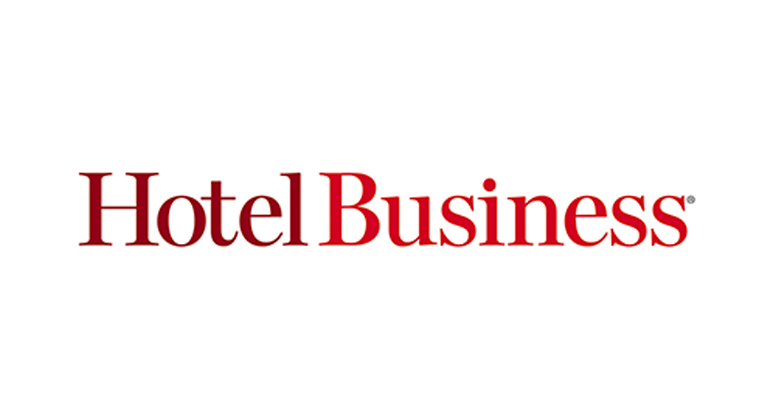Fed cuts interest rates; Industry reacts

For the first time in four years, the Federal Reserve has cut interest rates. The half-percentage-point cut was welcome news to the industry, which has seen relatively high rates as one cause of a slowdown in hotel transactions.
Hotel Business reached out to industry leaders to get their reaction to the rate cut and what it means for the long and short term. Here’s a look:
“Current economic and financing conditions are limiting hotel owners’ profitability and suppressing hotel transaction levels,” said Kevin Carey, interim president/CEO, AHLA. “We’re hopeful that lower interest rates will soon lead to decreased borrowing costs for hoteliers across the country as they look to invest in their properties, refinance loans and grow their businesses.”
“This cut is an important step toward providing economic relief and stability,” said Miraj S. Patel, chairman, AAHOA. “For many in the hospitality industry, this move comes at a critical time, as hotel owners continue to navigate the challenges posed by rising costs and a fluctuating market. We hope this decision will create more favorable conditions for growth and investment within the hospitality sector.”
“We encourage policymakers to continue working toward long-term solutions that support the health of the hospitality industry and the broader economy,” said Laura Lee Blake, president/CEO, AAHOA. “As always, AAHOA remains committed to advocating for policies that promote economic growth, financial stability and opportunity for all hotel owners.”
“It’s a good thing, but largely symbolic at this point,” said H. Keith Thompson, principal, Avison Young. “A 50bps lowers a very elevated rate a little lower. CMBS will go from low 8s to very high 7s. A bridge will still be SOFR +550, which is still 9-10. Equity (mezz) will still be 14-16%. The 50bps is a good thing for commercial real estate, but we are still a couple of years from recovery.”
He continued, “That said, it signals the beginning of a market thaw, which is a good thing for the hotel industry. It is also noteworthy that the 33+/- percent of the population that lives off saving interest just got bad news today. They have enjoyed 5+% on saving with zero risk. Interest rate cuts help the younger U.S. population and commercial real estate, but not older Americans.”
“The recent 50-basis-point rate cut is a boost for the market, exceeding expectations with the Federal Reserve also signaling further significant cuts in Q3 and Q4 of 2024, as well as in 2025 and 2026,” said Dennis S. Hopper, managing principal, DSH Hotel Advisors. “For the hotel sector, the immediate impact of these cuts is likely to increase transaction activity. Lower borrowing costs will enable buyers to offer higher prices for properties, helping to bridge the price gap between buyers and sellers that has widened due to previous interest rate hikes. Additionally, many transactions that were delayed due to rising rates are expected to proceed, contributing to increased deal flow. A notable beneficiary of these anticipated rate reductions is the SBA 7a loan, which typically has adjustable rates. Borrowers securing this loan for an acquisition today could see their interest rates decrease over the next one to two years, improving cash flow and further driving transaction volume, particularly in deals under $8 million+/-. We have seen a significant decrease in SBA 7a loans being used for hotel acquisitions due to the interest rate hike, so the decrease in rates should cause the reverse.”
He continued, “In the long term, if the Federal Reserve’s projected rate cuts proceed as anticipated, we expect a significant increase in transaction volume compared to the past 12 months. Cap rate compression is likely, leading to higher hotel valuations, while a renewed influx of lenders into the hotel sector will offer more competitive financing options, further driving transactional activity. Moreover, hotel ownership groups facing refinancing challenges or considering discounted sales may find relief, as the ability to refinance under more favorable terms becomes available.”
“Borrowers seeking SOFR-based construction and bridge loans will experience an immediate benefit from today’s 50bps rate reduction,” said Charlie Ryan, SVP, capital markets, Hunter Hotel Advisors. “Conversely, borrowers seeking permanent financing (5-year and 10-year loans) will likely be unaffected, at least in the near term. Many sector specialists predict the Fed will continue to cut rates over the next 18-24 months, reaching the trough in mid-2026, near 3%. That said, loans originated before 2022 are maturing in a significantly higher rate environment, leaving many borrowers still facing considerable challenges.”
“The recent cut provided a much-needed reprieve for hotel owners burdened by soaring debt,” said Adeel Amin, SVP, capital markets, Hunter Hotel Advisors. “Loans that ballooned to 10.5% from 4% in just a few years have become a little more manageable. With the prospect of additional rate cuts down the road, the immediate impact is a little payment relief. The ripple effect of this rate cut is expected to stabilize other benchmark indices commonly used by banks in conjunction with the prime rate.”
He continued, “The long-term implications of this rate reduction remain uncertain. Hotel owners grappling with rising labor, insurance and operating costs may be tempted to hold onto their properties in anticipation of further interest rate declines. Yet, the possibility of selling and investing in properties with more favorable returns cannot be discounted. The current economic landscape, dramatically altered from the conditions that led to the wave of hotel acquisitions, introduces new complexities to this strategic decision. While the interest rate cut is a significant factor, it is not the sole determinant of hotel profitability. Other economic indicators, such as occupancy rates, ADRs and operating expenses, will continue to play a crucial role in shaping the industry’s future.”
“I believe the biggest change following this rate cut will be in buyer sentiment,” said Ahmed Kabani, founder/CEO, Kabani Hotel Group. “At the very least, buyers now know that rates are coming down, which could boost confidence. That said, I don’t foresee an immediate or significant impact on the near- or long-term market. There’s still a considerable way to go before hotel lending rates become more reasonable, but hopefully, it’s now a matter of when rather than if.”
“This first rate cut in the long-expected start of the Fed’s campaign to ease monetary policy will be welcome news to participants in the hotel transactions market for sure, but will have little impact in the short term,” said Ed James, managing principal, Mumford Company. “Interest rates were already ticking down over the last few months and this cut of 50 basis points along with another cut of perhaps 50bps by the end of the year should continue that trend. Operating results at the property level have remained surprisingly strong through the summer despite headwinds. We expect a continuation of a fairly robust transaction market through the end of 2024 and into Q1 of 2025.”
“The Fed has strongly signaled their intentions to bring down the benchmark short-term rate and return to a more normalized interest rate environment, which cannot happen fast enough for hotel owners,” said Stephen O’Connor, principal/managing director, RobertDouglas. “Reasonable people can disagree about the magnitude of future reductions and the terminal rate where the Fed will stop cutting, but the timing and direction for interest rate movement is now fully demonstrated and in dramatic fashion at that. We expect a material increase in refinancing activity and a narrowing of the bid-ask spread as investors can bid with greater conviction of accommodative financing and sellers can feel more confident that they are getting a full valuation for their asset. Game On!”
“The 50bps rate cut should be a catalyst that will spur transaction activity, luring many investment groups off the sidelines with expectations of lower financing costs,” said Brian Hughes, EVP, business development, Twenty Four Seven Hotels. “The higher-than-average size of the cut demonstrates the Fed’s commitment to return to a lower rate environment after seeing inflation growth lessen. In the short term, this is a signal that directionally rates should continue to decrease, increasing the likelihood of reducing the bid/ask spread that exists today in the transaction market. Longer term, hotel demand should improve as businesses and consumers benefit from lower costs and an increase in funds available for travel.”
“It has been over four years since the Fed dropped rates back in March 2020 at the beginning of the pandemic, and since then, rates have increased at a rapid pace, constricting the supply of debt and equity, negatively impacting the transaction market, the recapitalization of hotels and the ability to secure funds for renovations,” said Gary Gray, chief investment officer, Twenty Four Seven Hotels. “This will be widely perceived across our industry as positive news. The rate cut at 0.5 points, while contemplated as a possibility, is double what most thought the Fed would do. This is an aggressive reduction that will invigorate the markets inspiring capital that has been sitting on the sidelines to become active. Hopefully, the Fed will continue to make incremental rate cuts, which will enhance investor confidence as we head into 2025.”
The post Fed cuts interest rates; Industry reacts appeared first on hotelbusiness.com.


